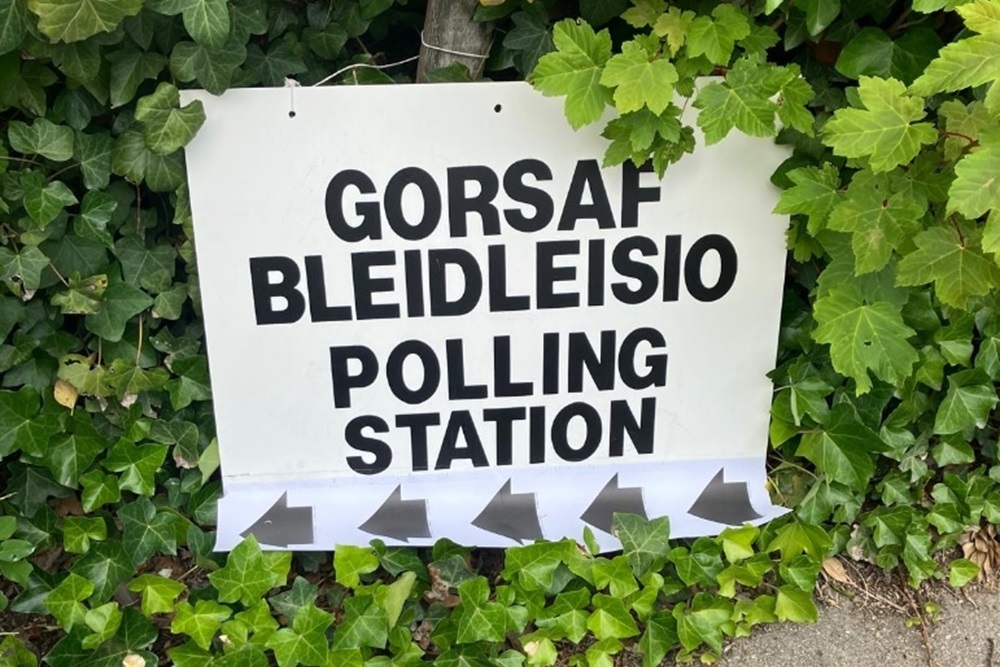Councillors reject switch to Single Transferable Vote system at local elections

Elgan Hearn, local democracy reporter
Councillors have rejected proposals to move to the Single Transferable Vote (STV) system at local elections, despite public support for the switch.
At an “extraordinary” meeting of Powys County Council on Thursday, October 17 councillors debated the issue after receiving the details of a public consultation.
The consultation took place between August 12 and September 30 and showed that 60.5 per cent support STV, while 27.6 per cent support first past the post.
Ward boundaries
Changes would also need to be made to the ward boundaries.
There would still be 68 county councillors, but the wards would be changed from the current 52 single and eight multi member wards to all multi member wards.
This means the number of councillors elected in each ward would vary from three to a maximum of six.
The decision needed to be taken by councillors before November 15 to allow the Democracy and Boundary Commission Wales time to re-draw the boundaries ahead of the council elections in May 2027.
Conservative Cllr Pete Lewington believed the consultation was flawed as there was “no process” to sift out multiple entries.
Cllr Lewington said: “It brings up the question how much confidence and reliance can be placed on the accuracy of results that inform the debate.”
Duplicates
Engagement officer Lowri Shepstone explained that the duplicates had been “kept in the consultation” results as the responses could come from a: “variety of people using the same device.”
Conservative group leader Cllr Aled Davies said that councillors were being asked to vote without knowing what the new multiple member ward set up would look like.
Cllr Davies said: “My ward could be part of a six councillor ward stretching from Llansilin all the way to Machynlleth.”
“Unless we know the physical nature of these proposals, I don’t see how we can vote for this today.”
Cabinet member for a safer Powys Liberal Democrat Cllr Richard Church said: “I’m pleased we’re having this debate today and that we let the people of Powys have their say.
“The outcome is clear.
“A fair voting system should not be about our interests it should be about the voters.
“Some of us in the chamber were elected unopposed.
“Most of us probably had more people vote against us than for us.
“STV means most people’s vote going to electing someone.
“It ensures people can be confident that someone was elected in their area who they chose.”
Cllr Graham Breeze of the Powys Independents group took issue with the comments about councillors being elected unopposed.
Cllr Breeze said: “I’m one of those that was returned unopposed, and I happen to think it’s because I’m doing a very good job.”
Independent councillors
Powys Independents group joint-leader Cllr Bev Baynham feared that independent councillors would struggle to be elected in expanded wards and would be forced to join a political party to get elected.
Cllr Baynham said: “STV is not right at this level.”
Portfolio holder for future generations, Labour’s Cllr Sandra Davies said: “We have lots of chaos going on in the world, lots of wars, there’s confusion coming out of the (Covid-19) pandemic.
All people want to know is when their refuse is going to be collected, and their potholes repaired.
“Changing this now is too much.
As the debate continued and councillors on both sides of the debate repeated the argument, council chairman, Conservative Cllr Jonathan Wilkinson “drew a line” under the proceedings to move to a vote.
The vote saw 21 councillors support STV, 33 vote against it and five abstained.
Following the vote the Mat Mathias of the Election Reform Society Cymru said: “Powys County Council had a historic opportunity to move to a fairer voting system that would have ensured every person’s vote in the county matters and the council chamber would better reflect the way people voted.
“Sadly, this vote will look to the public as though many councillors have put their own interests ahead those of voters and lost the chance to strengthen local democracy in Powys.”
Support our Nation today
For the price of a cup of coffee a month you can help us create an independent, not-for-profit, national news service for the people of Wales, by the people of Wales.





Why did it have to include geographical changes? The key selling point of STV is that you get to keep the familiar well-defined local representative that FPTP provides, just without the hazard of tactical voting. And frankly, what’s the point in a local government representative that isn’t local to the area? Was it to ensure the STV proposal failed?
In order for STV to work the constituency, or ward in this case, has to have at least three seats in each. Otherwise you’re using the alternative vote, not STV. I have to say the complaining by a Councillor co-opted on to the Council was absurd. Six member wards would be reserved for large towns in the County like Brecon. Villages would have three or four member wards covering them. If that’s the best excuse a co-opted Councillor can come up with then it demonstrates that he has no confidence that he can win an actual competitive election. Co-opting Councillors… Read more »
Surely STV benefits independents. If I want to vote for a friendly independent I chatted to in the high street but worry about letting the “wrong” main party in, I can under STV but daren’t risk it under FPTP.